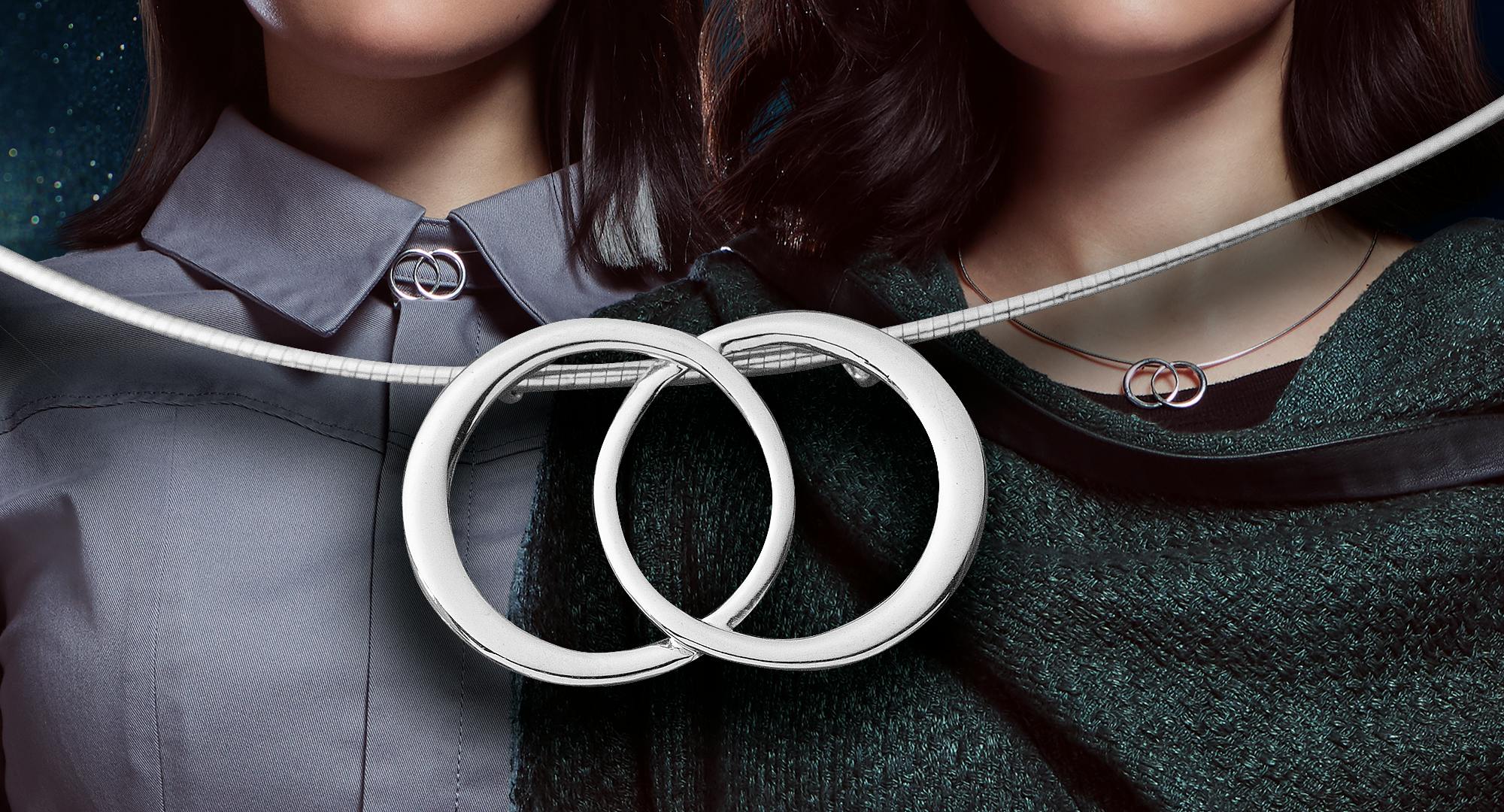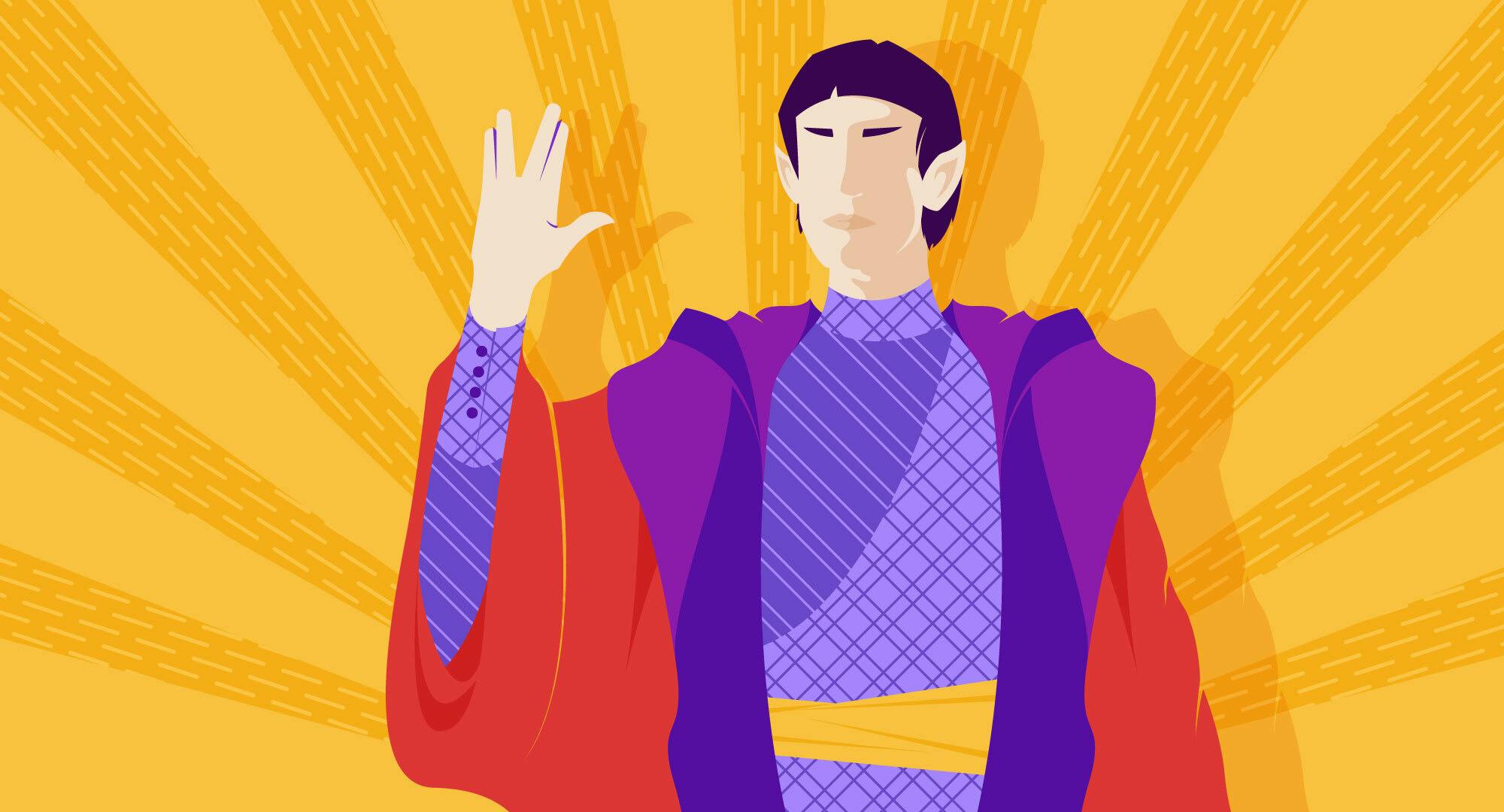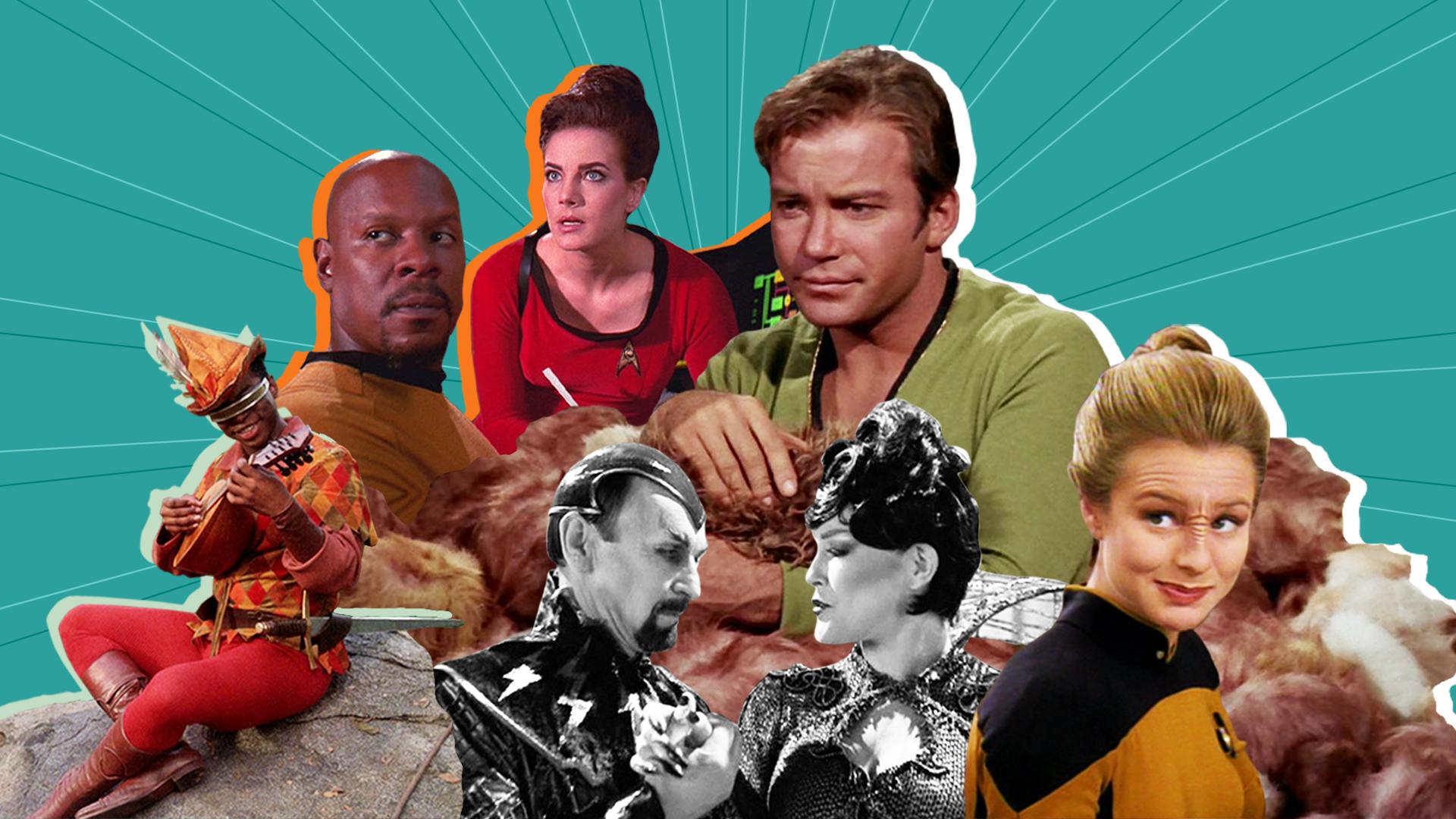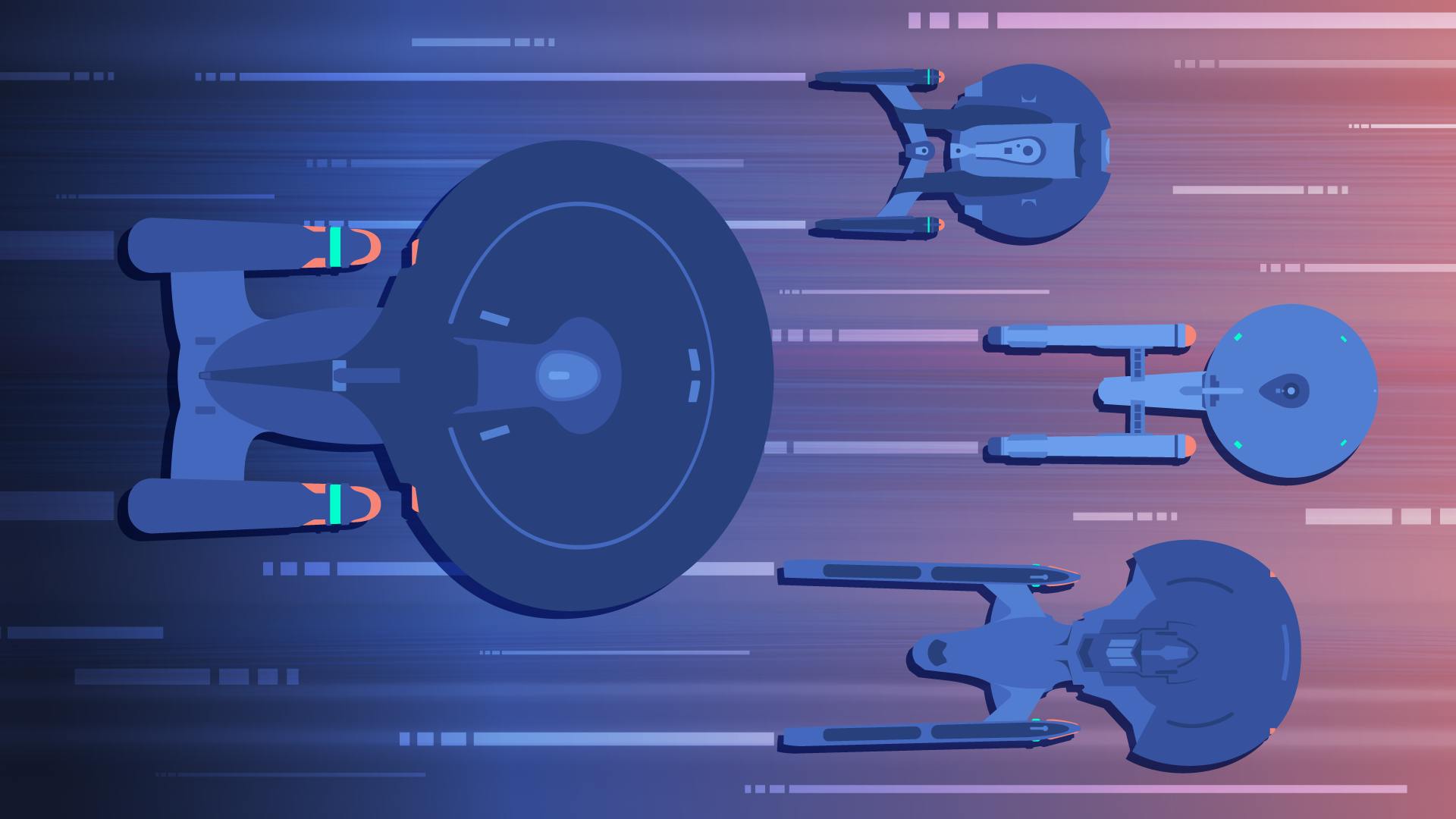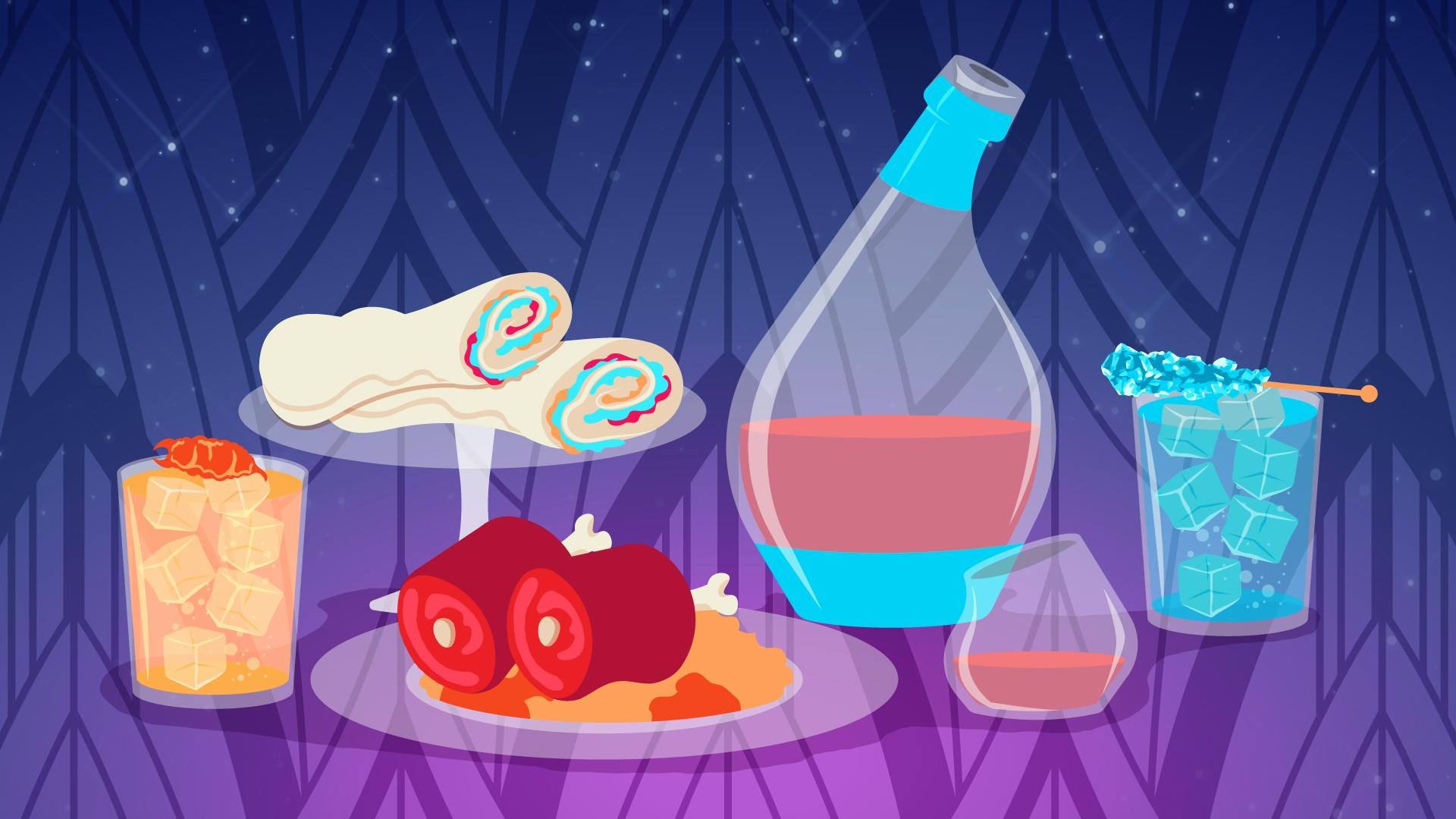Published Jan 17, 2024
Dahj, Soji, Girl Dads, and Me
One fan reflects on finding hope in Star Trek amidst tragedy.
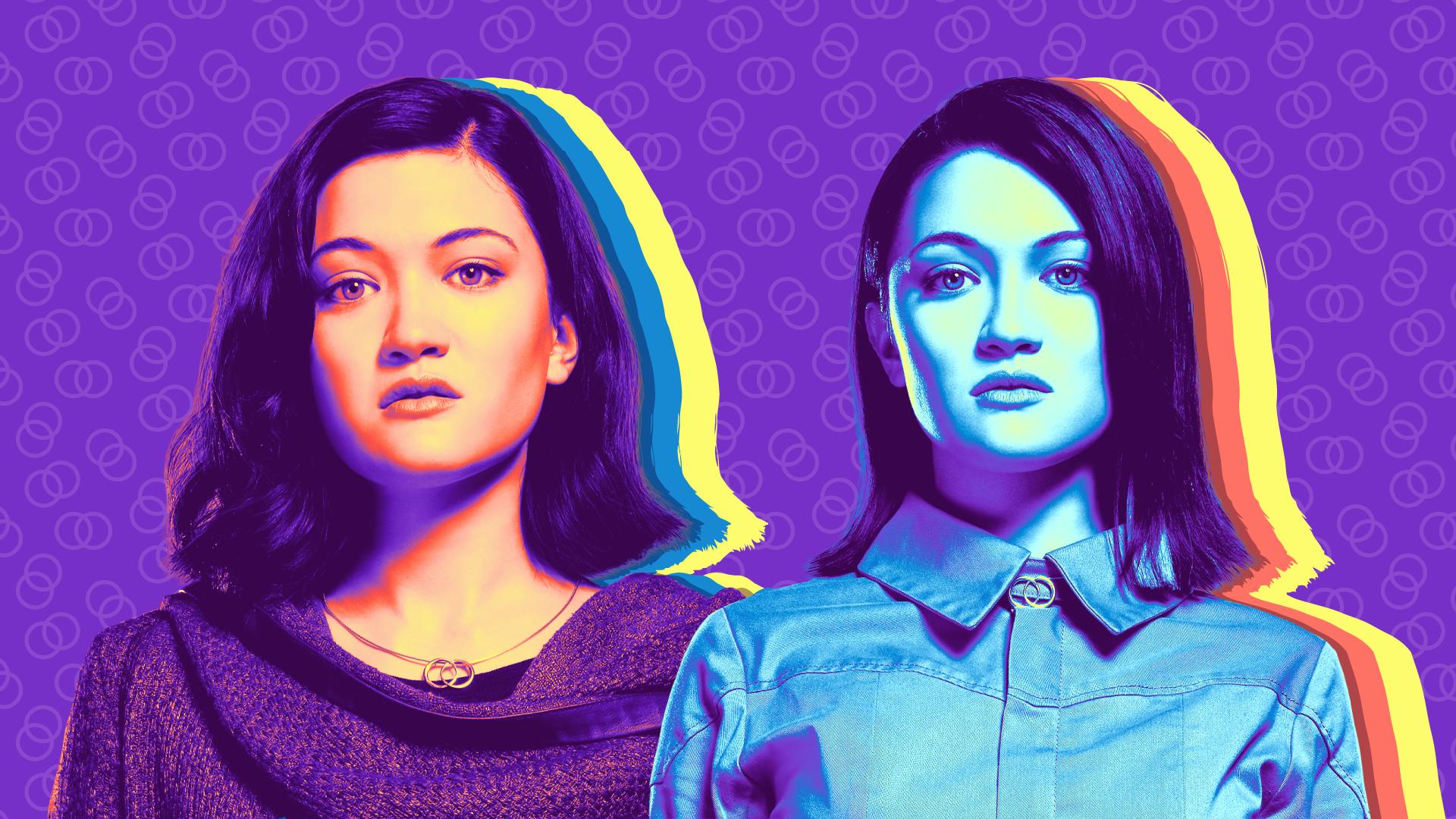
StarTrek.com
At its core, Star Trek has always been about one thing — faith and hope in humanity’s future.
In the first two episodes of , Dahj and Soji are the embodiment of that optimistic dream Gene Roddenberry first envisioned more than 50 years ago. Data’s twins are symbols — symbols of love, of overcoming tragedy and trial, of human achievement, and of hope and faith in the future. The beauty and power of their symbolism is captured in .
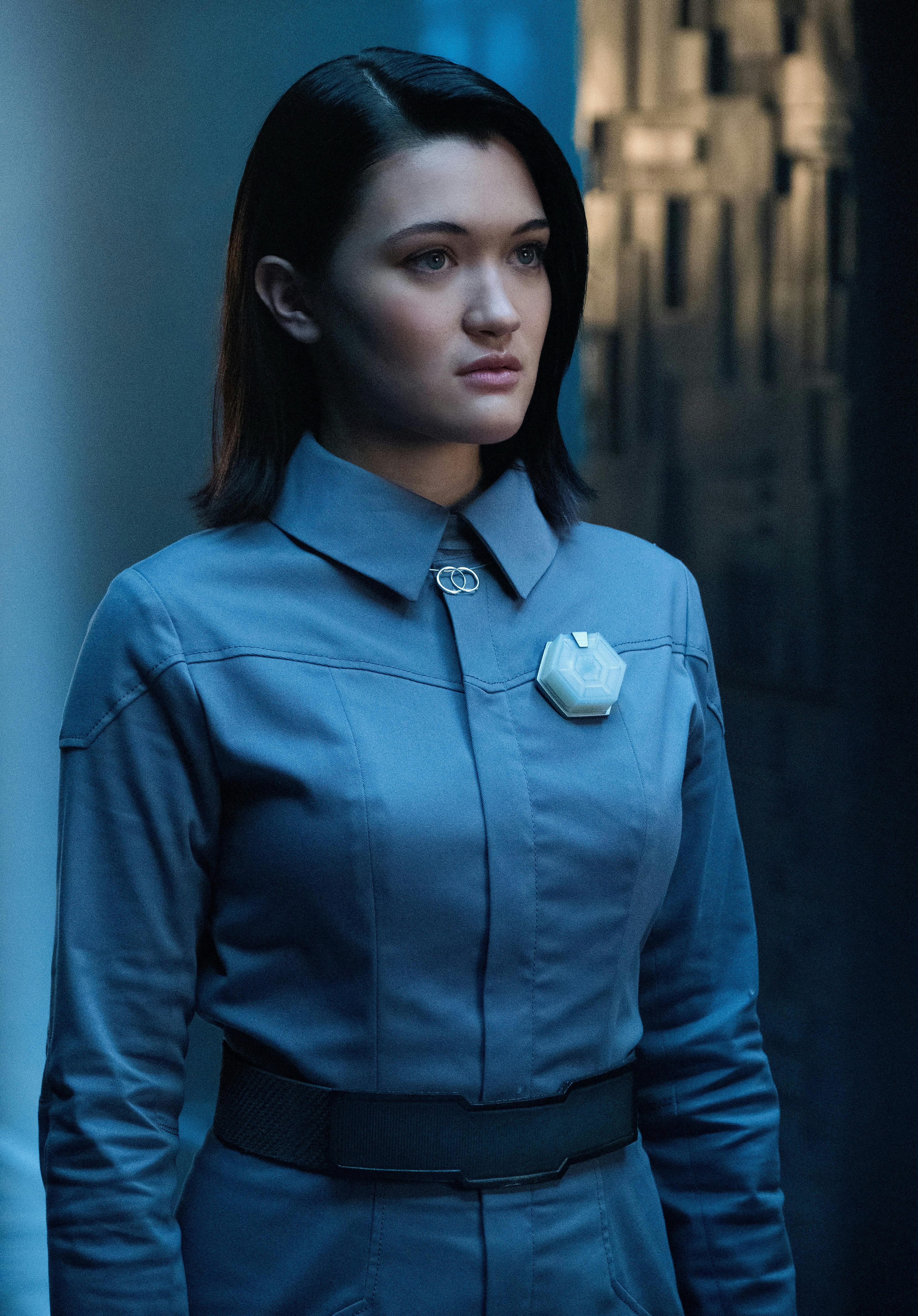
"The End Is The Beginning"
StarTrek.com
The shocking and tragic accident that claimed the lives of nine people, including NBA legend Kobe Bryant and his daughter Gianna, at the end of January 2020 sparked a remarkable trend on social media in the days that followed.
In response to a story sports journalist Elle Duncan shared about Kobe’s love for his daughters and why he called himself a "Girl Dad," tens of thousands of dads from all walks of life across the world posted pictures of their daughters, under the hashtag #GirlDad. This social media trend was coincidentally reflected in the first two episodes of Star Trek: Picard as Jean-Luc undertook his quest to search after and care for Data’s "daughters," becoming a surrogate #GirlDad at the end of the 24th Century, and demonstrating his pure love for the human-synth children of his dear friend.
Watching "Maps and Legends" on the heels of Kobe’s passing, I have felt from Picard the same love and #GirlDad instinct that I have for my own twin daughters, in whom I see Soji and Dahj’s symbolism represented every day.
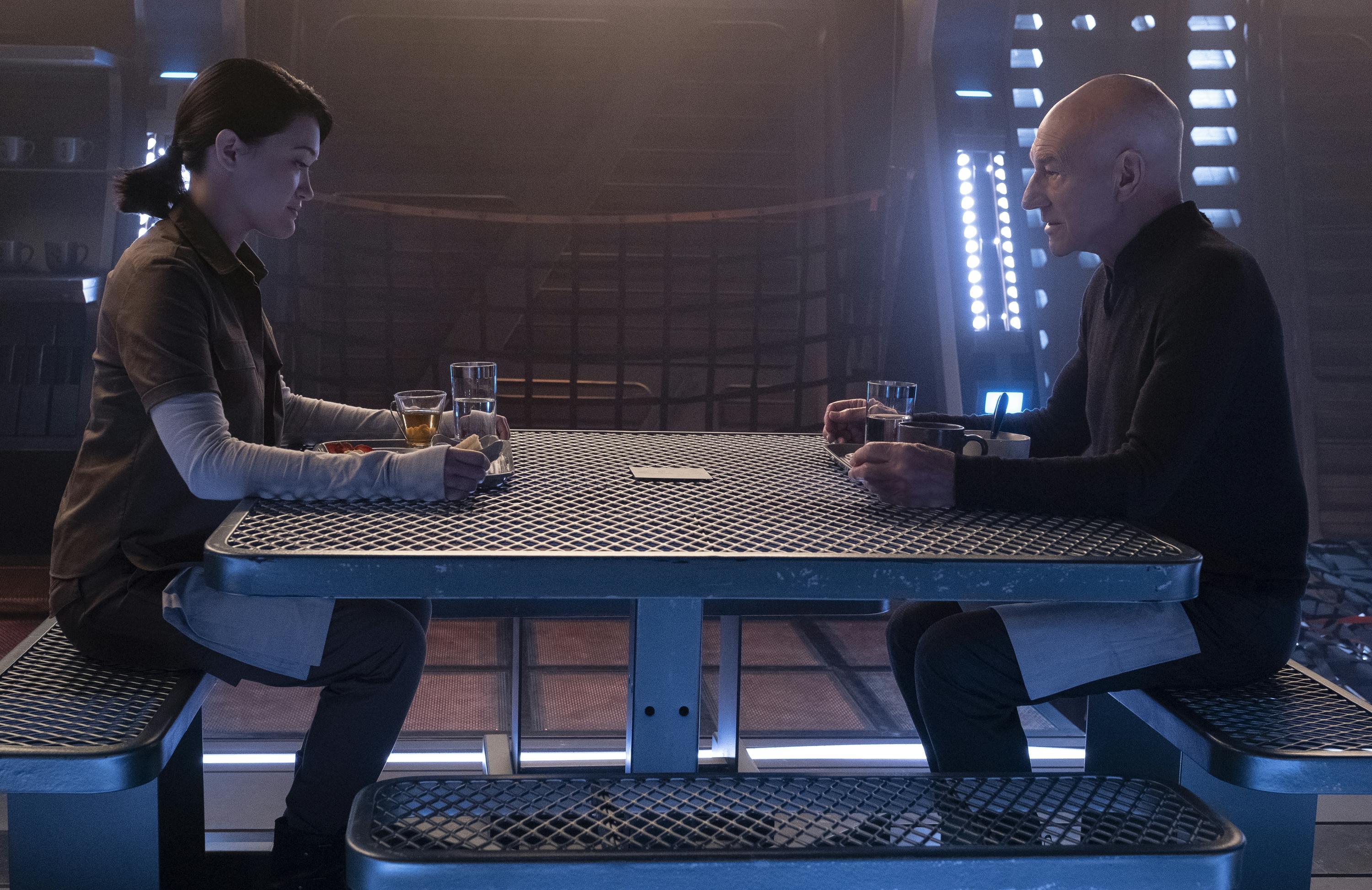
"Broken Pieces"
StarTrek.com
Throughout 2009, I battled cancer. Following months of chemotherapy, my wife Michelle and I learned that my cancer fight had left me effectively sterile. Combined with her lower fertility, our doctors were not optimistic that we would have more children. And though we loved deeply, Michelle particularly was devastated. More than anything, she dreamed of having a daughter. We were heartbroken at the news, but hugged our boy a little tighter.
As days turned to weeks and months to years, Michelle and I kept our hopes to have a daughter secret. Thanks to the seemingly insurmountable debt we’d incurred fighting cancer as a full time freelance writer, we couldn’t afford fertility treatments. And with directions from my doctors to wait for at least a year to try to have a baby to allow the chemotherapy poisons to be fully purged from my body, we tried to bury thoughts of a child. However, the universe had a different idea.
More than two-and-a-half years after completing chemo, Michelle and I felt pressed to take the risk and try to have another child. I was terrified. But we dismissed those fears and downloaded a fertility app; and when Michelle went to the doctor a few weeks later for an unrelated appointment, we learned, to our great shock, that it had worked. Michelle was pregnant with, we discovered another month later, twin girls. After picking our jaws up off the floor (and rating the app five stars), we prepared for the arrival of our miracle daughters.
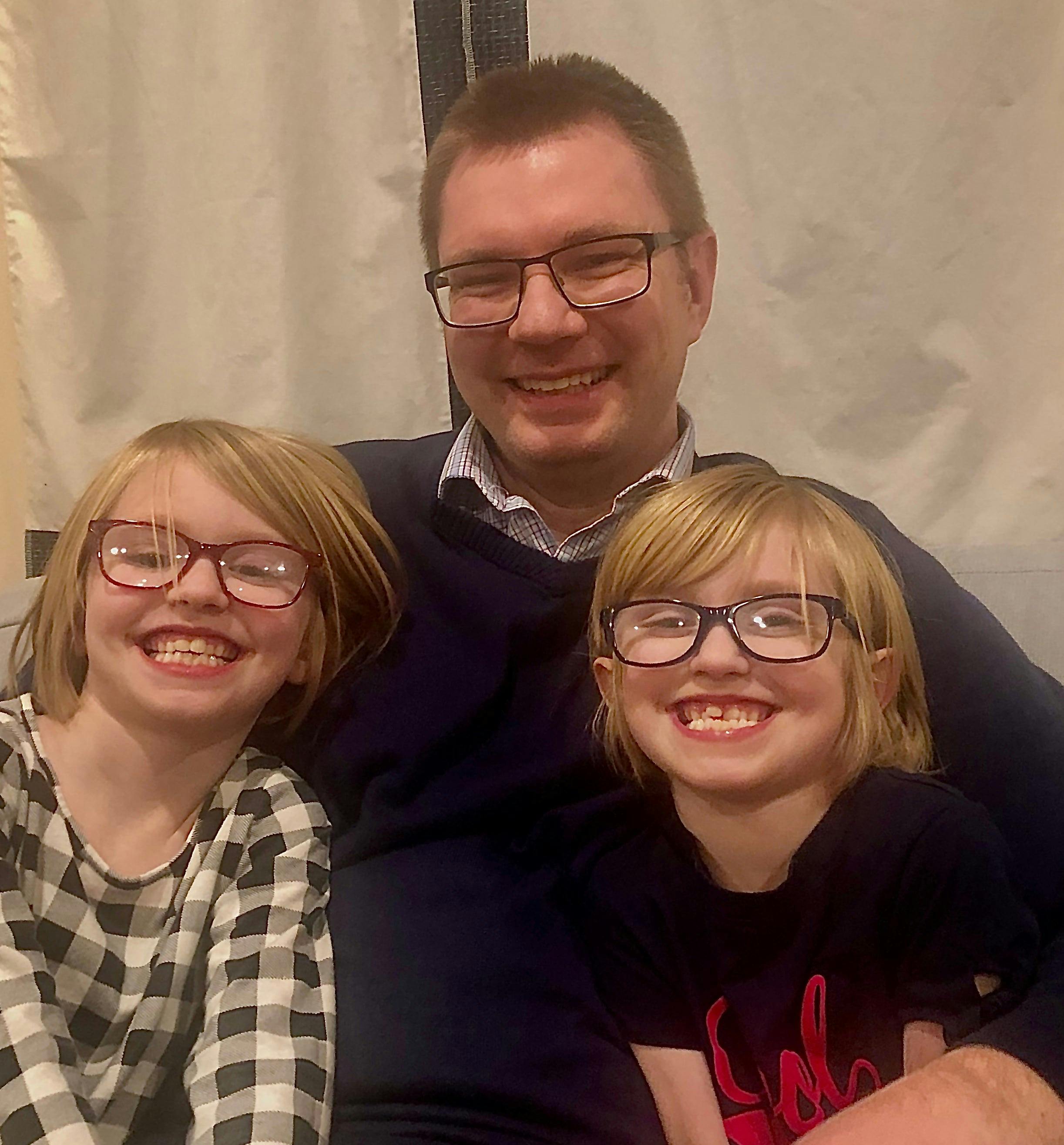
Author Jake Black, and his daughter's Elisabeth Hope and Rachel Faith
Jake Black
The pregnancy went well and the date for her induction approached. At our last doctor appointment before the induction, we discovered one of the girls had turned breech. The doctor strongly advised us to consider a c-section. In our hearts, we felt the c-section was imperative and proceeded.
Our girls, Rachel Faith and Elisabeth Hope, were born healthy and wonderful. A week later, however, Michelle was having a difficult time breathing. She returned to the emergency room where it was discovered the swelling she’d endured had been fluid retention that had caused a variety of issues, including congestive heart failure. The doctors were able to alleviate her symptoms and told her, "It's a good thing you had that c-section. If you'd delivered vaginally, with this undiagnosed heart condition, the strain on your heart would've killed you."
Our daughter Elisabeth, by turning in the womb (which had increased her risks of complications at birth), literally, albeit unknowingly, saved my wife’s life. I love my little girls more than I could ever express in words. Their arrival closed the dark cancer chapter of my life and opened a beautiful new one. I am a proud and grateful #GirlDad through and through.
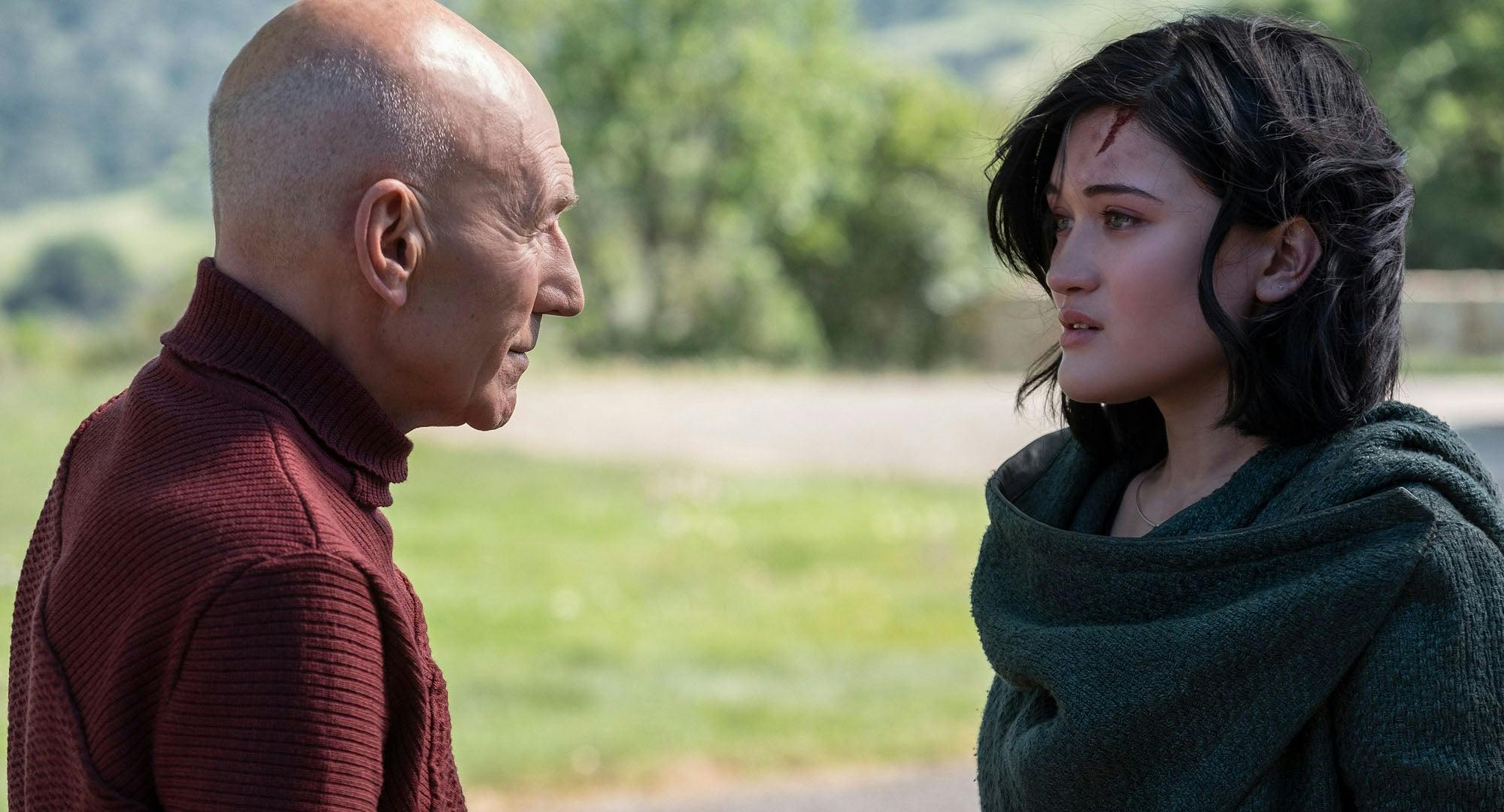
"Remembrance"
StarTrek.com
Watching Star Trek: Picard through this lens of experience, particularly in the days since Kobe’s passing, has made the show significantly more meaningful to me. Like Rachel and Elisabeth were the small flicker of light that restored hope and faith in my life following my difficult cancer fight, and as #GirlDad allowed tens of thousands to reflect the glowing adoration of Kobe Bryant for his daughter after his tragic passing, Dahj and Soji have ignited a light for Jean-Luc Picard that has helped him come out of the darkest period of his life.
Yes, the Federation and Starfleet might not be the institutions of virtue and nobility that we have seen in other series. But neither is our world. Our 21st Century world is a dark place, a far cry from Gene Roddenberry’s utopian vision. It can, at times, be difficult to rise above the institutional failures, the political hellscape, the personal and public tragedies, and the societal ills like sexism, ableism, and racism that have plagued our species for centuries. But if we can find symbols that give us hope for the future and faith in humanity, we can not only rise above the difficulties of living in our world, we can soar and become "the captain [we] remember."
Soji and Dahj, Kobe and Gianna, Rachel and Elisabeth are such symbols. They each represent Star Trek’s core — despite difficulty, there is reason to hope, to have faith. And nowhere is that more clearly represented than in . Its beautiful interlocking circles are without beginning and without end.
Data’s daughters were not supposed to exist. Yet they do. From the devastation of Data’s sacrifice to save Picard came the twin lights of hope and faith, eternally linked; destined to inspire the human spirit. There is comfort in these symbols, and therein is their power. "You really want to go back out into the cold?"
With symbols like Dahj and Soji, the answer can only be, "More than ever."
